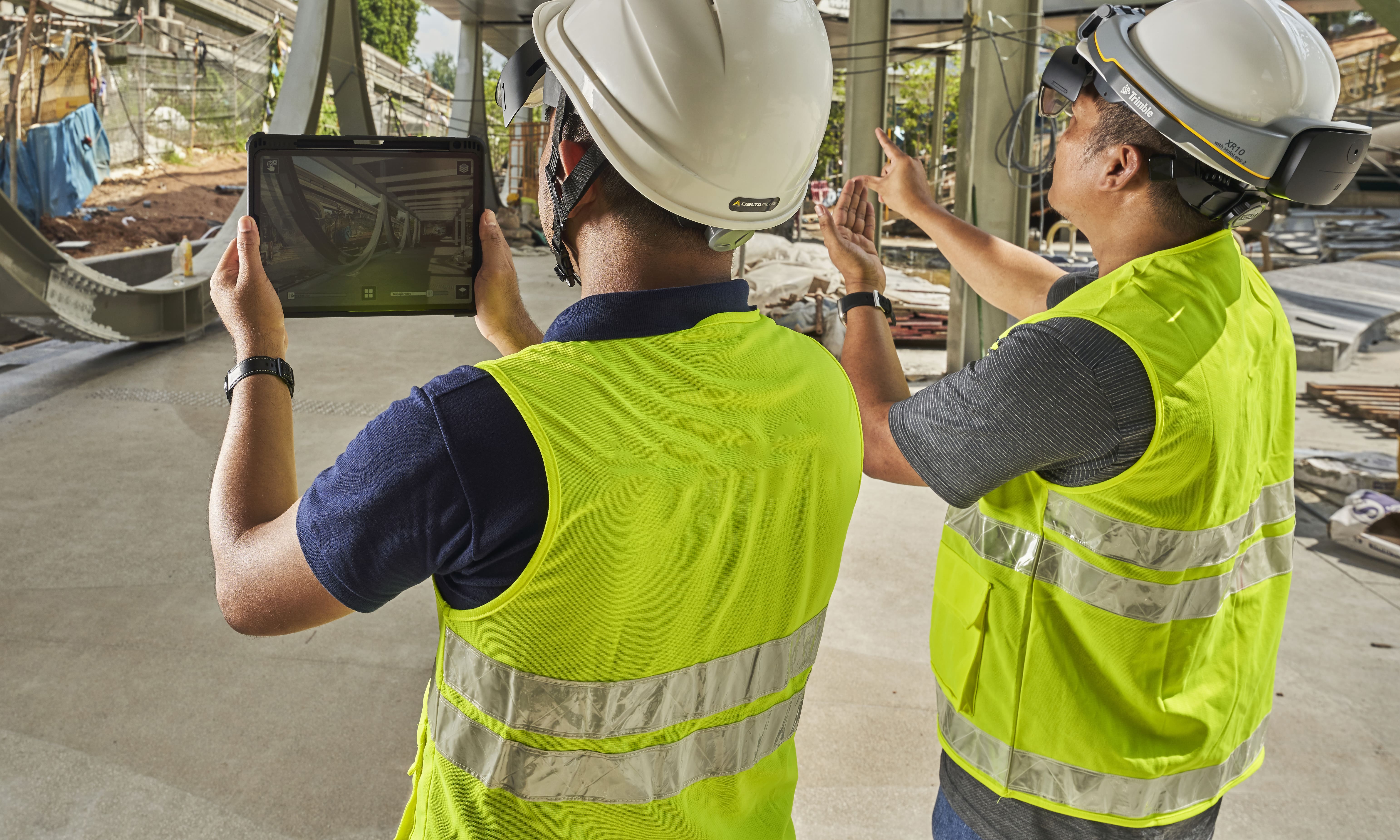2022 marked the year Singapore transited from the pandemic to almost a business and life-as-usual routine.
Construction activity rapidly picked up pace, reaching pre-pandemic levels.
However, that does not mean that we put aside all the lessons learnt or revert to old ways. We must be prepared for the
uncertainty that remains ahead of us and continue to improve our built environment (BE) sector.
CONTINUING INDUSTRY TRANSFORMATION
We are continuing to push for transformation in the sector. The refreshed Built Environment Industry Transformation
Map (BEITM) was launched in September 2022 after gathering extensive input from industry stakeholders to guide
our sector through the transformation in all stages of a building’s life cycle − from planning and design, to construction, to operations and maintenance.
DIGITALISATION AS A KEY ENABLER
Digitalisation is a key enabler for our sector’s transformation and I am glad to say that there has been notable progress on this front. In 2022, 45% of all new developments by Gross Floor Area (GFA) have adopted Integrated Digital Delivery (IDD), putting us on track to meet the 2025 target of 70% adoption.
We are also progressively building up a strong pool of qualifed personnel to execute IDD projects.
To date, more than 200 individuals, including professionals and students, have been accredited under the Digital Delivery Management (DDM) accreditation scheme.
To support SMEs onboard digitalisation, BCA launched a new $21 million tranche of the Productivity Solutions Grant for digital solutions that meet the needs of the BE sector. The packaged solutions in this new tranche include user training to enable employees of the firms to make full use of these digital solutions.

Beyond using technology and improving work processes, BCA is pushing for collaborative contracting to align the interests of all project parties towards shared project goals.
TRANSFORMATION AT DIFFERENT STAGES OF A BUILDING’S LIFE CYCLE
For the planning and design stage, we have been working towards the launch of CORENET X, which will streamline the processes for building plan submissions between industry stakeholders and regulators though the use of Building Information Modelling (BIM). More than 20 existing touchpoints will be consolidated into three key submission gateways, reducing 20% to 25% of the time needed for a firm to obtain approvals.
For the construction stage, we have seen an increase in the adoption of Design for Manufacturing and Assembly (DfMA) by GFA from 44% in 2021 to 51% in 2022. We are on track to meet our target of 70% by 2025. We have enhanced requirements under the Government Land Sales (GLS) programme and introduced the Built Environment Transformation Bonus GFA
Scheme to encourage the industry to ramp up their transformation efforts.
For the operations and maintenance stage, we have been looking at transforming the Facilities Management (FM) industry to improve the way buildings are maintained and reduce energy emissions. In September 2022, we launched a
$30 million programme to support the adoption of progressive FM procurement, processes and technologies. As of March 2023, we have seen at least 20 companies that are keen to apply.
Beyond using technology and improving work processes, BCA is pushing for collaborative contracting to align the interests of all project parties towards shared project goals. We aim to change the culture of the BE sector and raise the level of professionalism in project management.

At least 10 public sector projects will pilot this, with some having already started. CapitaLand will also lead its alliance to be amongst the first in Singapore to pilot this and will share its experiences with the industry to develop standard collaborative
contracting provisions for the industry to take reference and adopt.
TRANSITIONING TOWARDS A LOW-CARBON BUILT ENVIRONMENT
BCA continues to lead the way in intensifying our efforts to achieve national net zero emissions by 2050. BCA announced the introduction of a mandatory energy improvement regime by the end of 2024. It requires building owners with poor
energy performance to conduct an energy audit and implement measures to reduce energy consumption. BCA will continue to engage the industry on the implementation details.

I thank industry partners, firms and individuals who have contributed to the BE sector’s transformation progress thus far. It has not been an easy ride over the past few years to advance, but we did. Remember, all these efforts help to build not
just a better place for Singaporeans to live in, but also create greater career opportunities for future generations. We look forward to everyone’s continued support in this transformation journey to make our sector more dynamic, resilient and productive.